Vertebrates - Animals with Backbones -> maturation
Maturation in Science
Maturation in science refers to the process of development and growth of an organism or system over time. This process is influenced by both genetic and environmental factors, and it is essential for the progression of living organisms and the functioning of various systems.
Factors Affecting Maturation
There are several factors that can affect the maturation process:
- Genetic Factors: Genetic makeup plays a significant role in determining the rate and pattern of maturation in organisms. Genes inherited from parents can influence physical and physiological development.
- Environmental Factors: Environmental conditions such as nutrition, exposure to toxins, and stress can impact the maturation process. Adequate nutrition and a healthy environment can support healthy maturation.
- Hormonal Factors: Hormones play a crucial role in regulating the maturation of various systems in the body, including the reproductive system, skeletal system, and more.
Examples of Maturation
Maturation can be observed in various aspects of living organisms:
- Human Development: The physical and cognitive development of humans from infancy to adulthood is a classic example of maturation.
- Plant Growth: The growth of plants from seeds to maturity involves the process of maturation, where genetic and environmental factors play a role.
- Animal Development: The growth and development of animals, including the development of organs and systems, exemplify maturation.
Study Guide
To better understand the concept of maturation, consider the following study guide:
- Define maturation and explain its significance in the context of living organisms.
- Discuss the role of genetic factors in influencing the maturation process.
- Examine how environmental factors can impact maturation in plants and animals.
- Compare and contrast the maturation process in humans and other living organisms.
- Explore the role of hormones in regulating maturation in different systems of the body.
By studying and understanding the concept of maturation, you can gain insight into the intricate processes that drive the development and growth of living organisms.
.◂Science Worksheets and Study Guides Fourth Grade. Vertebrates - Animals with Backbones
Study Guide Vertebrates - Animals with Backbones
Vertebrates - Animals with Backbones  Activity Lesson
Activity Lesson Vertebrates - Animals with Backbones
Vertebrates - Animals with Backbones  Worksheet/Answer key
Worksheet/Answer key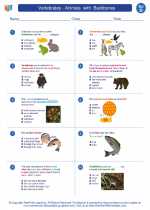 Vertebrates - Animals with Backbones
Vertebrates - Animals with Backbones  Worksheet/Answer key
Worksheet/Answer key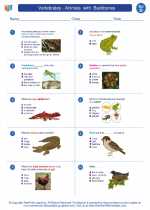 Vertebrates - Animals with Backbones
Vertebrates - Animals with Backbones  Worksheet/Answer key
Worksheet/Answer key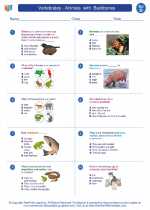 Vertebrates - Animals with Backbones
Vertebrates - Animals with Backbones  Worksheet/Answer key
Worksheet/Answer key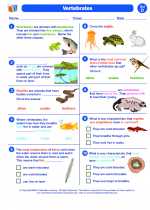 Vertebrates
Vertebrates  Vocabulary/Answer key
Vocabulary/Answer key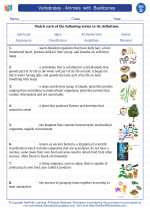 Vertebrates - Animals with Backbones
Vertebrates - Animals with Backbones  Vocabulary/Answer key
Vocabulary/Answer key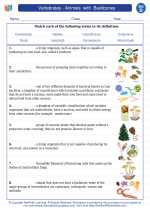 Vertebrates - Animals with Backbones
Vertebrates - Animals with Backbones  Vocabulary/Answer key
Vocabulary/Answer key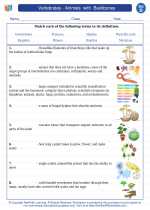 Vertebrates - Animals with Backbones
Vertebrates - Animals with Backbones  Vocabulary/Answer key
Vocabulary/Answer key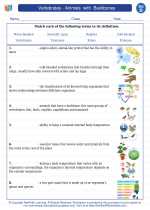 Vertebrates - Animals with Backbones
Vertebrates - Animals with Backbones 

 Activity Lesson
Activity Lesson
 Worksheet/Answer key
Worksheet/Answer key
 Worksheet/Answer key
Worksheet/Answer key
 Worksheet/Answer key
Worksheet/Answer key
 Worksheet/Answer key
Worksheet/Answer key
 Vocabulary/Answer key
Vocabulary/Answer key
 Vocabulary/Answer key
Vocabulary/Answer key
 Vocabulary/Answer key
Vocabulary/Answer key
 Vocabulary/Answer key
Vocabulary/Answer key

The resources above cover the following skills:
Life Science: The students will use scientific skills and processes to explain the dynamic nature of living things, their interactions, and the results from the interactions that occur over time.
Diversity of Life: Explain how animals and plants can be grouped according to observable features.
Classify a variety of animals and plants according to their observable features and provide reasons for placing them into different groups.